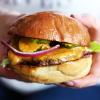A few months ago, my partner and I attended a comedy show and the warm-up act was asking different people in the audience about their careers. I mentioned to the comic that I was a Food Safety Manager for a small candy company. And his immediate reaction was "CANDY ISN'T SAFE!!!". My reaction was to basically respond with some form of "It may not be healthy, but it's safe." Yet, that response got me thinking about the philosophy behind food safety. Every food safety and quality professional out there deals with this push and pull between health and safety every single day.
Ultimately I want to attempt to answer the paradox between healthy food and safe food, but I'm still at a loss as to how I feel about it.
Food safety is ultimately making sure the food that we as people and our pets consume is not going to kill us. Yet, a paradox arises when we bring up certain food types like sweets. Sweets (especially hard candy) are generally on the lower risk of food safety issues, but no one would consider hard candy a healthy food. On the other hand, your more common foods that have higher food safety risks are farm fresh fruits and vegetables. This category is considered one, if not, the healthiest food categories there is.
What makes candy, a generally accepted unhealthy food, safe to eat? Because it will most likely not kill you tomorrow or a week from now, but over time it can cause health issues.
Personally, I feel that us in food safety are trying to prevent immediate health impacts. Biological, chemical, physical, and possibly radiological hazards that could harm consumers in the short term. As for the long term, it becomes personal choices and habits that affect health outcomes from food.
Just a nugget of thought.




















